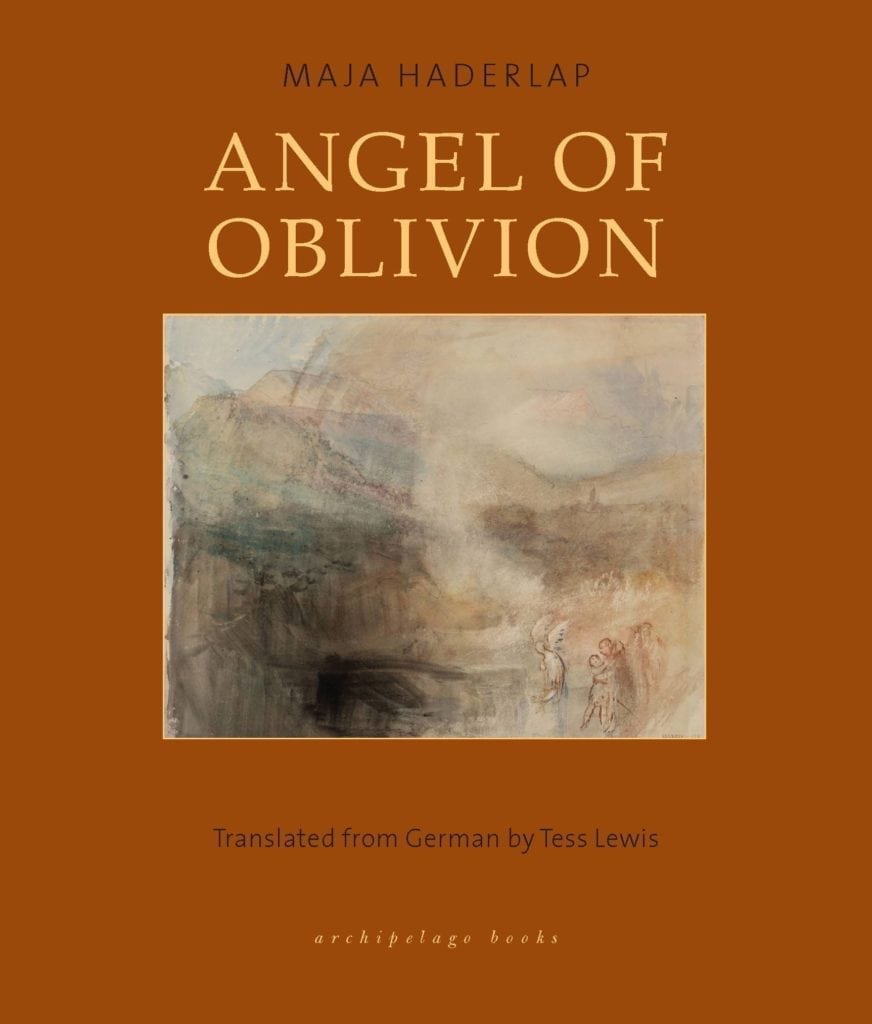Praise
"A first-person narration intimate enough to record an interior journey of self-discovery, it captures nuances of fleeting emotion thanks to Haderlap's long-exercised lyric talent while also furnishing as riveting and lucid an account of the Austrian Slovenes in their suffering during and after World War II...[Tess Lewis] shows her mastery of poetic craft everywhere in her prose narration."
"An arresting evocation of memory, community, and suffering."
"Haderlap plunges readers into a morass of European history..."
"In her novel Angel of Oblivion, Maja Haderlap conducts a battle with the horrific pictures of her childhood that is both impressive and oppressive… the act of writing down these memories was a means of liberation. … Maja Haderlap succeeds in creating vivid scenes of an archaic landscape and its rural way of life. One can sense she is a poet."
"Haderlap has written Angel of Oblivion in German with a clear and yet poetic tone, in which time is a solid glacier crushing underneath itself everything that the young hero once saw as wonderful and enduring."
Tess Lewis has done a fine job of translating Haderlap’s lucid and lyrical prose, particularly the dread-tinged segments: "I’m afraid that death has taken root inside me, like a small black button, like a latticework of dark moss creeping invisibly over my skin." In the end, though, Angel of Oblivion strikes a positive note, becoming a hymn to remembrance – one urging us to salvage and safeguard the shards of our past from the tide of history.
Angel of Oblivion, with its doomed and colourful cast of real-life characters, as well as multiple cruel twists of fate, is a devastating story, never less than wholeheartedly told.
"Angel of Oblivion is a beautifully poetic novel about a young girl navigating the treacherous terrain between two hostile communities and two extremely burdened languages: Slovenian as a language of heroic resistance and continued humiliations suffered, and German, a way out of her stifling rural upbringing but also the language of the camps, which her Grandmother barely survived and many family members didn’t."
"Illuminating an almost forgotten chapter of European history and the European present... Angel of Oblivion deals with harrowing subjects – murder, torture, persecution and discrimination of an ethnic minority – in intricate and lyrical prose."
"The strength of Haderlap’s novel is that it stretches far back in time, in order to make the present recognisable."
"[A] painstaking and emotional account of the Slovenian-speaking minority in Austria during and after World War II."
"Haderlap’s novel seems to transcend the boundaries between languages and histories."
"By telling her grandmother’s story, the narrator finds her own, unmistakeable language, which speaks against the general urge to forget."
Angel of Oblivion is a continuous, plunging attempt to express the disorderly but urgent moment of daring to master the unmasterable. There is nothing so crass here as an ‘arc’ or a redemptive release. The reader is on the hook until the end – at which point the narrative’s underlying premises shimmer.
Haderlap’s novel brings to mind the work of artist Anselm Kiefer (whose work can be seen at the SFMOMA’s “German Art After 1960” exhibition). His paintings evoke the same desolate feeling of a landscape, natural and mental, poisoned by the Holocaust. Though Kiefer’s art is influenced by foreign myths and symbols, there is that same idea that Maja Haderlap confronts in Angel of Oblivion: that even the generation born after the fall of the Third Reich is affected by its legacy.
A sparkling and hugely sympathetic English translation.... Maja Haderlap is a dramaturge and a poet and her prose is full of rich poetic images and constructions. It is a profoundly beautiful and deeply upsetting novel worthy of all the prizes.
Extras
In this interview, Maja Haderlap discusses her love of translation.
In her opening speech for the 2014 Bachmann Prize ceremony in Klagenfurt, Maja Haderlap discussed writing and the poetics of the periphery. The speech has been translated by Adrian West and made available by the Austrian Cultural Forum New York.
In December 2014, Maja Haderlap spoke to the Austrian Cultural Forum in London. Iga Nowicz writes about the event and “reflects on memory, history and the challenge of capturing experience” for Kings College London’s The Glossa magazine.
As we posted, Tess Lewis won the Austrian Cultural Forum’s 2015 translation prize for this translation.
Two of Tess Lewis’ translations of Maja’s poems, “when speech left me” and “translation,” were published in the February issue of Words Without Borders.
In this interview, Tess Lewis answers questions about translating Angel of Oblivion with PEN America after winning the 2017 PEN Translation Prize.
Tess Lewis’ writes about the work of Maja Haderlap for Poetry Society of the America


